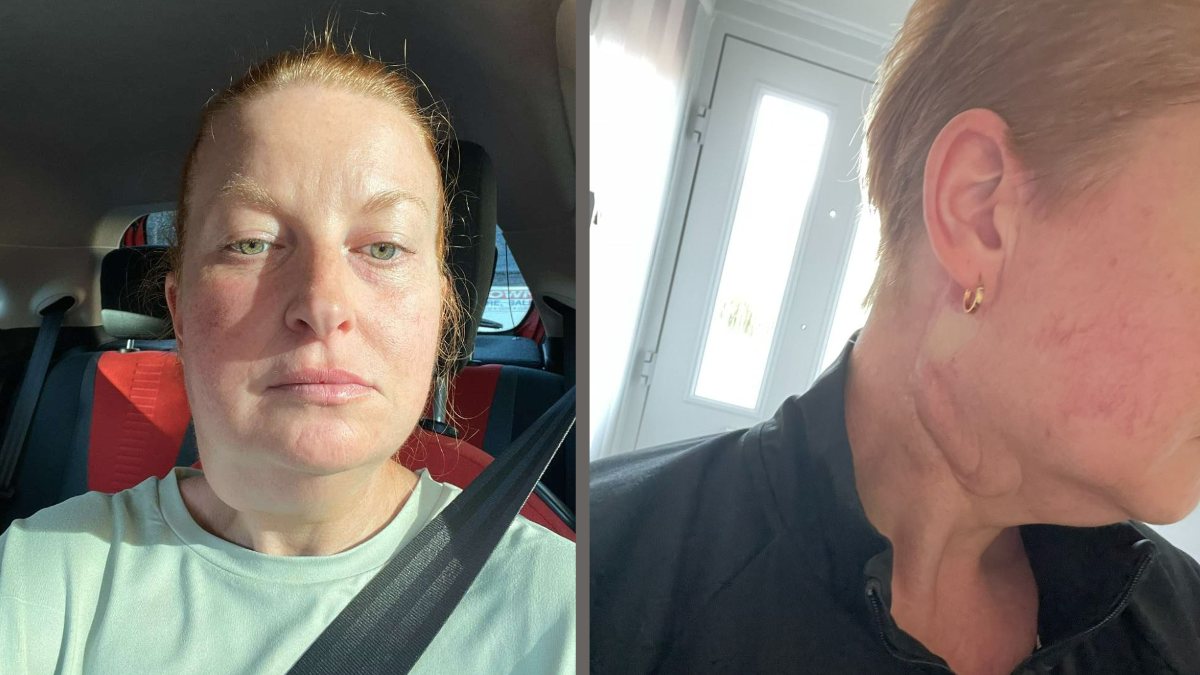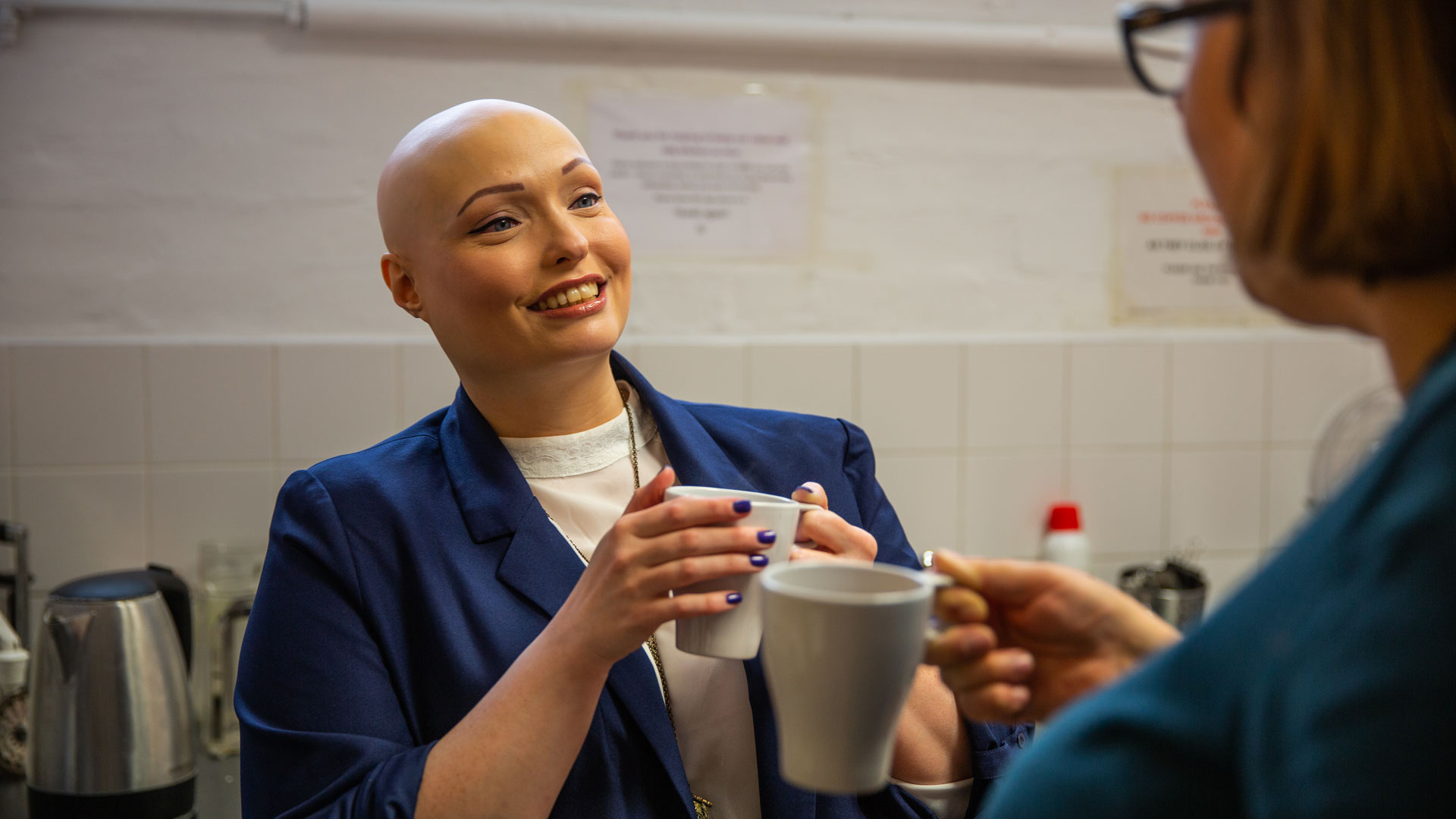Hi, I’m Hayley, I’m 43 and live in Surrey. I live with my 15-year-old son and our sausage dog, Rolo. I am currently in the third year of my degree in Social Work.
I acquired a visible difference after I was diagnosed with skull-based tumours in my early twenties. I had to have three operations and radiotherapy on my head and neck. As a result, I no longer have facial symmetry. I also have nerve damage, swelling and scarring, along with taste change, restricted jaw opening and change to speech.
Since my twenties, my tumours have come back, and my most recent operations have caused the most scarring and differences in my appearance.
I was really shocked when I saw myself after the first surgery, and each subsequent surgery has affected my facial symmetry.
Having liposuction on my jaw line has helped my facial symmetry, but I still get less confident days, even now. Our face is what we present to the outside world, before people learn about what we are as a person.

Hayley shares her scars post-surgery.
I have good days where I feel confident, and on the days that I don’t, I push through and remember what I’ve been through and achieved so far. On less confident days, my trick is to wear a bright lipstick or top. If I catch someone staring at me, I just think to myself that they’re admiring my lipstick! In general, when people stare, I like to think it’s out of curiosity, rather than coming from a place of nastiness.
Today, I feel better about my visible difference when people ask. I prefer to get questions out of the way and move on.
During the pandemic, I really struggled with confidence and self-esteem. Meetings and my university lectures were carried out via Zoom. Meeting new people and introducing myself on Zoom was difficult. I felt nervous that people would wonder about my facial difference.
I’ve learnt since then to minimise my screen and focus on others and the task or meeting at hand. I remind myself what I have to contribute and give myself a little pep talk before joining.
I will use my lived experience within my social work career to support others in a more empathic, understanding and patient way.
I’m proud of my journey so far and how far I’ve come. I’m well on my way to completing my social work degree. I’ve found a new love for exercise, which has helped my confidence and made me more comfortable in my own skin.
I have wanted to be a social worker for many years, but life got in the way. When I was approaching 40, I bit the bullet. I got the qualifications needed to apply for a three-year Bachelor’s degree course in social care.
My tumour grew back after my second surgery, which forced me to defer for one year for more surgery. But that hasn’t stopped me, and I’m back and in my final year, ready to qualify.
I think that having a visible difference and multiple surgeries throughout my life has definitely made me a more empathic and patient person. I will use my lived experience within my social work career to support others in a more empathic, understanding and patient way.
To people experiencing surgery that will make them look different, like me, I’d say: Be kind to yourself. It’ll be hard adjusting to the “new you”. But take each day as it comes and be honest when you feel scared or aren’t coping. There’s support all around you – from professionals, including those at charities like Changing Faces, and from your family and friends.

